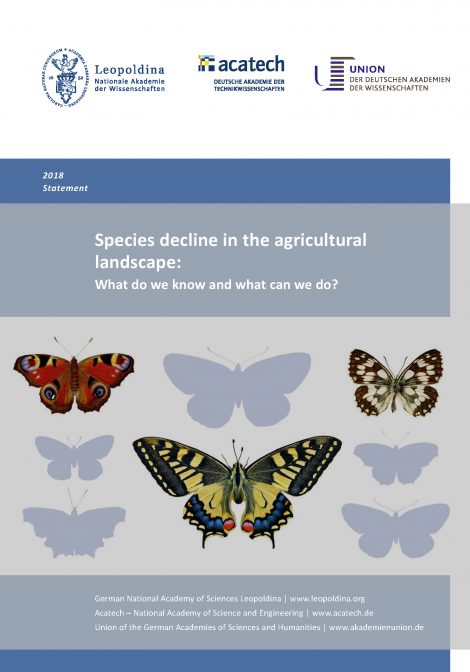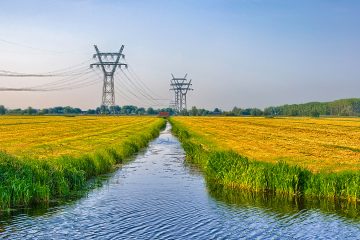Species decline in the agricultural landscape: What do we know and what can we do?
Key messages of the statement:
- In summary, it can be stated at this time, from a scientific perspective, that the biodiversity of numerous groups of species in the agricultural landscape has declined considerably in Germany in the last few decades.
- The loss of biodiversity is not limited to areas outside nature reserves, but is also taking place within nature reserves.
- The decline in animal and plant species can be attributed to a combination of many factors, including: increase in fertile, yet species-poor arable farming crops, preventive and extensive use of pesticides, overfertilisation, increase in farmed land, loss of species-rich grasslands, loss of the landscape’s structural diversity.
- Measures to protect and promote biodiversity have to take into account the political, economic, and social aspects of agriculture. A systemic approach with various parallel approaches is therefore necessary.
- There is a need for action in agricultural policy, both at the European level and in Germany. It must be worthwhile for farmers to farm land in a biodiversity-friendly manner. The upcoming reform of the European Union’s Common Agricultural Policy (CAP) should be used to provide greater funding for measures to protect biodiversity.
- Individual municipalities are also obliged to preserve, foster and increase biodiversity on their land.
- Trade can also help to increase biodiversity. Products from regional, biodiversity-friendly production should therefore be labelled accordingly. The development of infrastructure allowing for further processing of agricultural products to be carried out regionally should be promoted.
- Societal awareness of the value of biodiversity must be raised; learning environments beyond the classroom such as museums could play a vital role in this regard.
- We must be able to document and record changes for a broad and representative range of species and habitats. Furthermore, it is imperative that we are able to monitor the effectiveness of measures for preserving biodiversity. In order to do so, we urgently need longterm, nationwide, and standardised monitoring.
This statement is the result of three-month discussions involving 16 experts from agricultural sciences, botany, ethics, cultural sciences, nature conservation, ecosystem research, crop protection, environmental law, and zoology. The group of experts will submit further and more specific recommendations in the coming year.



